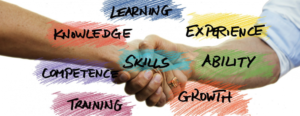In today’s dynamic workplace, technical expertise alone is no longer sufficient for achieving career success. Employers are increasingly recognizing the importance of soft skills – those intangible qualities that influence how we interact with others and navigate professional challenges. In this plan, we’ll explore how harnessing the power of soft skills can propel your career forward and help you stand out in a competitive job market.
Understanding Soft Skills
Soft skills complement technical abilities and play a pivotal role in driving organizational success. They include strategic thinking, problem-solving, effective communication, emotional intelligence, and collaboration – all essential for thriving in today’s fast-paced work environment.
Key Soft Skills for Career Success
- Strategic Thinking: The ability to think strategically is highly valued by employers, as it enables individuals to navigate uncertainty and drive innovation.
- Problem-Solving: Tackling complex problems with clarity and creativity is essential for overcoming challenges and driving positive outcomes.
- Effective Communication: Clear and concise communication fosters understanding and collaboration, enhancing productivity and teamwork.
- Emotional Intelligence: Empathy and self-awareness are crucial for building strong relationships and fostering a positive work culture.
- Collaboration: Working effectively with others promotes innovation, diversity of thought, and collective success.
Importance in a Changing Landscape
As technology continues to reshape industries, the demand for soft skills is only increasing. Unlike technical skills, which may become obsolete over time, soft skills remain timeless and transferable across roles and industries. They offer resilience and adaptability in the face of change, making them indispensable assets for career growth.
Leveraging Soft Skills for Success
For job seekers, highlighting soft skills on resumes and during interviews can differentiate you from other candidates. Emphasize experiences that demonstrate strategic thinking, problem-solving, and effective communication to showcase your value to potential employers.
Benefits for Companies
Companies that cultivate a workforce rich in soft skills reap numerous benefits, including enhanced innovation, collaboration, and growth. Employees who excel in these areas not only drive individual success but also contribute to a positive and productive work culture.
In today’s rapidly evolving world, the demand for soft skills remains unwavering. By prioritizing the development and utilization of soft skills, you can unlock new opportunities, drive organizational excellence, and thrive in an ever-changing landscape. Remember, achieving a balance between hard skills and soft skills is key to charting a successful career path.Top of Form.
FOLLOW FOR MORE:
Fuel Your Success: Essential Skills for Professional Triumph

